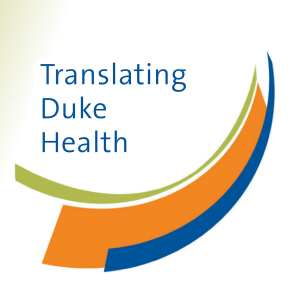Unraveling the Mysteries of the Immune System
Duke Health leadership launched Translating Duke Health in 2017 as a multi-disciplinary, multi-year commitment to capitalize on Duke’s collective strengths in research, clinical care, and population health to address major health challenges.
Better Maternal Health, Better Infant Health: Growing Up with Project HOPE 1000
Unlocking the Secrets of Neurodegenerative Diseases
White Glove Service for Brain and Spine Metastasis Patients
Immune System Can be Coaxed into Selecting Key Antibodies to Fight HIV
Animal study shows ability to overcome a long-standing hurdle in HIV vaccine development
Researchers have cleared a major obstacle in the development of an HIV vaccine, proving in animal models that effective, yet short-lasting antibodies can be coaxed into multiplying as a fighting force against the virus.
The finding, led by a team of researchers at the Duke Human Vaccine Institute (DHVI) and Boston Children’s Hospital, publishes online Dec. 5.
Translating Duke Health Initiative Celebrates Two Years of Success
The Translating Duke Health Initiative (TDH) —a multi-year, multidisciplinary program designed to bring Duke teams together to address society’s most challenging health issues—continues to push forward with innovative projects and new partnerships since its launch in Fall 2017.
The goal of the initiative is to further develop expertise in five key areas—brain cancer, brain resilience, cardiovascular health, immunology, and children’s health—by focusing on faculty recruitment, retention, grant funding, research infrastructure, and educational opportunities.
Gable awarded grant to study origins, possible treatments for CIDP
Duke Neurologist, Karissa Gable, MD, is investigating the pathophysiologic mechanisms of chronic inflammatory demyelinating polyneuropathy (CIDP), advancing our understanding of this autoimmune disease and opening new potential roles for treatment. This research is made possible thanks to the GBS|CIDP Foundation International, which awarded Gable a one-year research grant.
Filiano, Holley and Zhong Receive Funding from Translating Duke Health Initiative for Work in Immunology
School of Medicine faculty members Anthony Filiano, PhD; Christopher Holley, MD, PhD; and Xiaoping Zhong, MD, PhD, were selected to receive funding from the Translating Duke Health Initiative (TDHI) for their research in immunology. Each received $75,000.
Funded projects:
Duke Symposium Brings Together Global Experts to Understand and Develop Treatments for Parkinson's Disease
Scientists from diverse training and backgrounds, including neurologists, basic scientists, environmental engineers, and psychiatrists gathered from around the world at the Washington Duke Inn this May to find new ways to treat, understand, and, eventually, cure Parkinson’s disease.
School of Medicine Establishes a ‘Learning Health System’ to Leverage Data Science Tools to Improve Research and Patient Care
A key component of the Duke University School of Medicine’s strategic research plan is the establishment of a learning health system. The goal: to ensure that the large amounts of protected health data collected from current and previous patients as well as data realized through research projects can be more effectively used to improve patient care.






